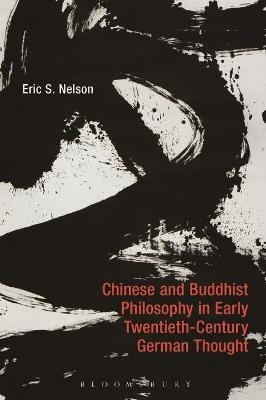
Chinese and Buddhist Philosophy in Early Twentieth-Century German Thought
Seiten
2019
Bloomsbury Academic (Verlag)
978-1-350-10104-3 (ISBN)
Bloomsbury Academic (Verlag)
978-1-350-10104-3 (ISBN)
Presenting a comprehensive portrayal of the reading of Chinese and Buddhist philosophy in early twentieth-century German thought, Chinese and Buddhist Philosophy in Early Twentieth-Century German Thought examines the implications of these readings for contemporary issues in comparative and intercultural philosophy.
Through a series of case studies from the late 19th-century and early 20th-century, Eric Nelson focuses on the reception and uses of Confucianism, Daoism, and Buddhism in German philosophy, covering figures as diverse as Buber, Heidegger, and Misch. He argues that the growing intertextuality between traditions cannot be appropriately interpreted through notions of exclusive identities, closed horizons, or unitary traditions. Providing an account of the context, motivations, and hermeneutical strategies of early twentieth-century European thinkers’ interpretation of Asian philosophy, Nelson also throws new light on the question of the relation between Heidegger and Asian philosophy. Reflecting the growing interest in the possibility of intercultural and global philosophy, Chinese and Buddhist Philosophy in Early Twentieth-Century German Thought opens up the possibility of a more inclusive intercultural conception of philosophy.
Through a series of case studies from the late 19th-century and early 20th-century, Eric Nelson focuses on the reception and uses of Confucianism, Daoism, and Buddhism in German philosophy, covering figures as diverse as Buber, Heidegger, and Misch. He argues that the growing intertextuality between traditions cannot be appropriately interpreted through notions of exclusive identities, closed horizons, or unitary traditions. Providing an account of the context, motivations, and hermeneutical strategies of early twentieth-century European thinkers’ interpretation of Asian philosophy, Nelson also throws new light on the question of the relation between Heidegger and Asian philosophy. Reflecting the growing interest in the possibility of intercultural and global philosophy, Chinese and Buddhist Philosophy in Early Twentieth-Century German Thought opens up the possibility of a more inclusive intercultural conception of philosophy.
Eric S. Nelson is Associate Professor of Humanities at Hong Kong University of Science and Technology, Hong Kong.
Introduction
1. A Peculiar Journey: Confucian Philosophy in German Thought
2. The Problem of Life in China and Europe: Zhang Junmai, Eucken, and Driesch
3. Resentment and Ressentiment: Nietzsche, Scheler, and Confucian Ethics
4. Technology and the Way: Daoism in Buber and Heidegger
5. Heidegger, Misch, and the “Origins” of Philosophy
6. Phenomenology, Eurocentrism, and Asia: Husserl and Heidegger
7. Encounter, Dialogue, and Learning: Martin Buber and Zen Buddhism
8. Nothingness, Language, Emptiness: Heidegger and Chan Buddhism
Conclusion: Toward an Intercultural Philosophy
Bibliography
Index
| Erscheinungsdatum | 25.02.2019 |
|---|---|
| Verlagsort | London |
| Sprache | englisch |
| Maße | 156 x 234 mm |
| Gewicht | 508 g |
| Themenwelt | Geisteswissenschaften ► Philosophie ► Geschichte der Philosophie |
| Geisteswissenschaften ► Philosophie ► Philosophie der Neuzeit | |
| Sozialwissenschaften | |
| ISBN-10 | 1-350-10104-4 / 1350101044 |
| ISBN-13 | 978-1-350-10104-3 / 9781350101043 |
| Zustand | Neuware |
| Haben Sie eine Frage zum Produkt? |
Mehr entdecken
aus dem Bereich
aus dem Bereich
die kolonialen Wurzeln der französischen Theorie
Buch | Hardcover (2024)
Matthes & Seitz Berlin (Verlag)
CHF 41,90
oder Das Leben Montaignes in einer Frage und zwanzig Antworten
Buch | Softcover (2023)
C.H.Beck (Verlag)
CHF 25,20


